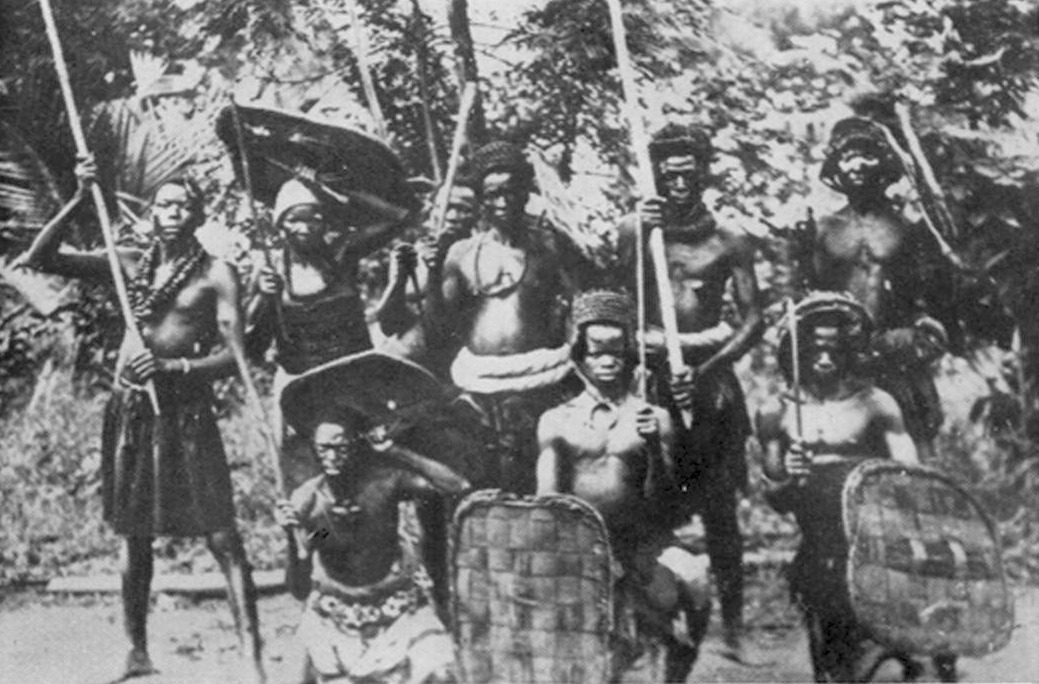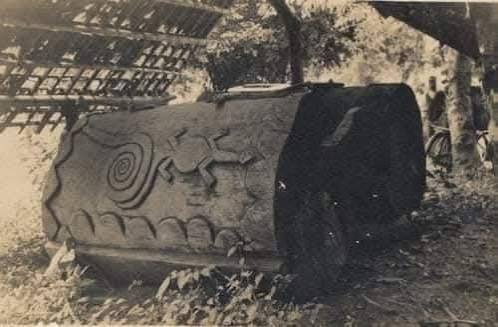Southern Igboland was one of the fiercest battlegrounds during the centuries of slavery and raids. From the marshlands of Ngwa to the stronghold of Igbere, stories of resistance echo across generations. Heroism here was not only in the clash of swords but in the courage to refuse enslavement, to guard one’s community, and to carry memory into the present. ”Mmadụ anwụọ, aha ya adịghị anwụọ” (When a person dies, their name does not die).
The Ngwa Warriors
The Ngwa people of today’s Abia State became renowned for their organized resistance. Their age-grade system (ọgbọ) trained young men in discipline, farming, and warfare. When raiders approached, the age grades transformed into military units, armed with spears, machetes, and charms from war deities.
Ngwa oral history remembers mothers singing to departing warriors:
“Onye aghọtara agha, ọ gaghị akwụsị ịkụ egwu” (He who understands war never stops drumming). Through chants and rituals, Ngwa soldiers believed they carried not just weapons but the strength of their ancestors into battle.

Igbere: The Town That Refused Capture
Igbere, sometimes called “Igbo Erughi” (the Igbo that could not be subdued), has become a symbol of resistance. Oral memory says that the town repelled several Aro-led attacks, earning respect across Igboland. Elders recall that before every confrontation, the Ikoro drum summoned men and women alike to defend their boundaries.
A proverb captures their spirit: “Ọnwụ ka mma karịa ịgba ohu” (Death is better than slavery).
Songs and Oral Poetry: Ese-Ịke
Resistance was not fought with weapons alone; it was also sustained with words. Ese-Ịke, or war songs, rallied fighters and mocked enemies. Some songs carried coded messages — warnings of raids disguised in rhythm, or instructions for warriors hidden in verse. These chants, passed from lips to lips, became the oral archive of Igbo heroism.One remembered verse sings: “Ọ bù n’ọhịa anyị ji egbu agụụ, ọ bù n’ụlọ anyị ji egbu agha”
(It is in the forest we fight hunger, it is at home we fight war).
Everyday Heroism
Not all heroes carried swords.
- Women hid fugitives in yam barns and smuggled food through forest paths.
- Farmers burned their own crops rather than let raiders take them.
- Families gave their children symbolic names like Nwagha (child of war) or Ohuabunwa (slavery is not for us)to declare defiance even in naming.
Through these acts, entire communities chose dignity over submission.
The Role of the Ikoro Drum
Once again, the Ikoro drum stands at the center of memory. In Southern Igbo towns, its booming sound meant everything: a call to war, a funeral announcement, or the gathering of elders. The drum gave rhythm to collective resistance and is still revered today as a sacred reminder of vigilance.
“Ịkpọrọ mmadụ n’ụlọ, ọ bụrụ na ọ gaghị abịa, Ikoro ga-akpọ ya n’ụlọ ọzọ” (If a person does not answer when called once, the Ikoro will call again).
So too does memory call the Igbo to remember their ancestors’ sacrifices.

The Legacy of Heroism
The stories of resistance left marks that still shape identity today:
- Festivals — Some towns reenact historical battles during annual celebrations.
- Names — Children bear names like Onwubiko (death, I implore you) and Uzoegbu (the path of war), keeping memory alive.
- Oral Traditions — Elders continue to tell how Ngwa, Igbere, and other communities stood strong, ensuring younger generations inherit courage, not fear.
Southern Igboland’s story of heroism is not just about battles won or lost. It is about the courage to preserve dignity, the wisdom to pass memory forward, and the resilience of a people who valued freedom above life itself.
“Agụ anwụọghị, ya na mmadụ ga-anọ na ọhịa”(If the lion has not died, it still roams the forest with man).
The spirit of Igbo heroism has not died; it still walks with the people today, echoing in their festivals, their names, and their unyielding pride.
References
- Basden, G. T. (1966). Among the Ibos of Nigeria. Frank Cass & Co. Ltd.
- Oriji, J. N. (2007). Igboland slavery and the drums of war and heroism. Journal of African History, 48(1), 23–44.
- Talbot, P. A. (1921). The peoples of Southern Nigeria. Oxford University Press.




